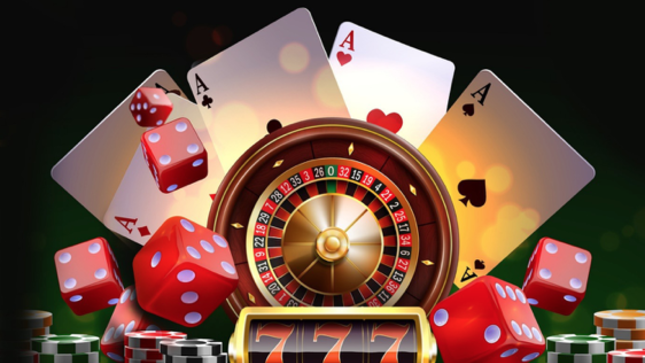Casino Psychology Tricks Used to Manipulate Players
June 2, 2022, 2 years ago

Between the luxurious slot machines and thrilling table games, casino institutions are more than what we see in the movies or when visiting the establishment itself. Most of us, especially gambling enthusiasts, do not understand what's happening behind the scenes and do not even notice how they become addicted to the games. There are some hidden tips that most casinos use in order to manipulate the players and keep them inside the building, so if you want to learn more about the tips and avoid becoming the victim of the manipulation, keep on reading. Here you can find the MercuryNews’s list of best real money casino sites including 7 Best Online Casinos in Canada With High Payouts and casinozonderidin.net.
Flashing Lights and Non-Stop Music
Most of you have noticed that whenever you jump into the casino establishment, there are many flashing slot machines, and there is always music going on inside the building. While you may think that this is for fun and to make the experience of the gamblers more enjoyable, in reality
This is what keeps people in the casino for a house, which makes them addicted. Several studies have shown that gamblers who play the games while there is a slow, peaceful sound going on are likely to spend more time staying in the game than when there is no sound or the sound is too fast.
In addition to the sound, the casino's flashing lights and the "cut-off" feeling from the outside world make the gamblers forget about their lives.
Games with No Cash
Before you can bet on a slot machine, you must first put money into it. After that, the funds are transformed into electronic credits. When it comes to cashing out, the device will not give you money. It will instead create a voucher. These convenient coupons allow customers to forget they're spending actual cash. Table games, such as Blackjack, typically use digital payment tricks to keep players engaged by generating their money into chips. When you start a game with chips instead of actual coins and money, you can place large bets. It also irritates less when you lose chips until you realize how much money you've lost.
Location of the "most-needed" services
Are you hungry? Do you want to use the restroom? Do you want to cash in your chips or ticket? No worries. Just be ready for plenty more enticing casino game action along the way. Restrooms, cashiers, and restaurants are typically located deep within the structure. You won't have any trouble finding their location, but they're purposefully placed deep within the casino, so when you're completed with these services, you'll go and restart playing casino games.
The total absence of clocks and natural lighting
It's challenging to keep track of time in a casino since there aren't usually any windows or clocks to tell you how long you've been playing. This way, you are getting isolated from the outside world. When you are not keeping track of the time, you do not feel tempted to quit the game and return home. This means that you can become completely engrossed in gambling. So, if you do not want to waste your time sitting in front of the slot machine and spending all your money, put a watch on your head or/and set the alarm on your phone.
Free Alcohol
Alcohol has a weakening effect on the brain. Even if the gambler does not get drunk, he or she may make poor decisions while under the influence of alcohol. Basically, alcohol ruins gamblers' thinking, which is often detrimental to them but advantageous to the casino. Free alcohol is arguably the dirtiest strategy used by casinos to entice gamblers to spend money. This is because you will never believe that this is not a sign of hospitality but just a special strategy to make you lose all your money.
It may appear that it's about the numbers, but casinos use a variety of psychological tricks to prevent gamblers from gaining an advantage. The great news is that you can not let them have control over you by recognizing those manipulation strategies. This article combined most of the widely used strategies, including the design of the institutions, flashing lights, location of the services, absence of clocks and windows, the offer of free alcohol, etc.











